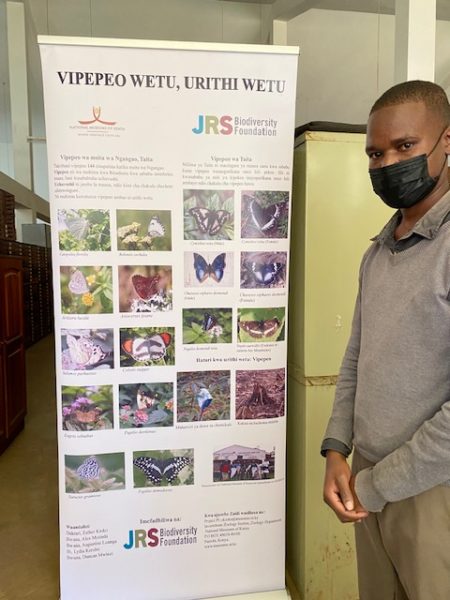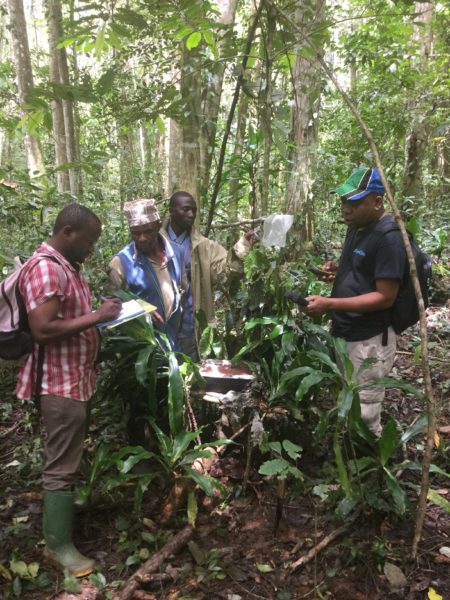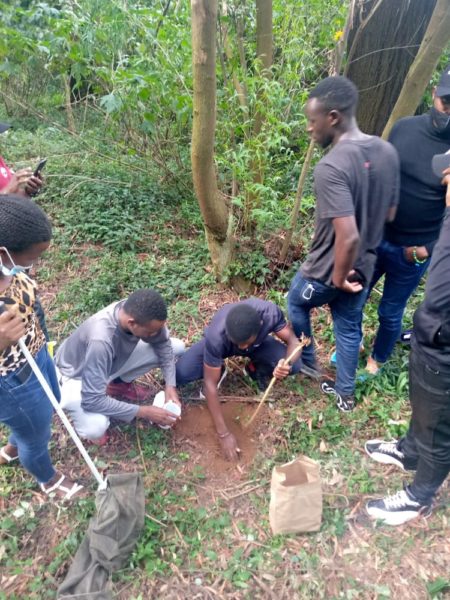JRS aims to advance the field of biodiversity informatics to connect knowledge to the people and institutions who make decisions. With a focus on sub-Saharan African countries with key biodiversity assets, we recognize that capacity-building is key to sustaining our investments. Training young scientists and the next generation of African researchers is central to many of our projects. Here are just a few of the up-and-coming scientists that we are proud to support:

Mr. Luanga (pictured above) supports the National Museums of Kenya’s (NMK’s) JRS-funded project, Assessment of Lepidoptera Pollinator Species Diversity Data in East Africa. This project provides training for two Masters students, one in Kenya and one in Tanzania. He stands next to a poster showcasing the butterflies of Taita Hills in Kenya, to raise awareness in local communities of the diversity and importance of butterflies, explaining endemic species and the threats they face, and how to conserve them. The title in the national language, Kiswahili, means “Our Butterflies, Our Heritage.”

The Tanzania Wildlife Research Institute’s (TAWIRI’s) project, Assessing Landscape Level Impacts of Climate Change on Montane Forest Pollinators in Tanzania, has trained more than 30 staff, students, and young technicians in field survey techniques, data collection, and database management. Increasing local participation in research is key to advancing understanding of the many unique species in this region, which is home to globally important – and highly fragmented – montane forest ecosystems.

The Center of Excellence in Biodiversity and Natural Resource Management (CoEB), hosted at the University of Rwanda, is developing the Rwandan Freshwater Biodiversity Information System (RBIS) with the goal of expanding local technical research capacity and data records. Iribagiza Peace and Cyubahiro Jean Jules are two students focused on biodiversity data management training. Their studies include data collection activities such as identification, verification, standardization and data-sharing through the RBIS platform. They have also developed skills in field sampling techniques for various taxa (such as insects, plants, and amphibians), mapping with ArcGIS and QGIs applications, and scientific writing.
In-project training received through both formal courses and on-the-job training strengthens the capacity of African learning communities and builds local networks that will sustain our investments and further the work of partners institutions. To all of our young scientists – congratulations and keep up the good work!

